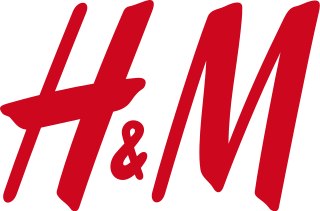Septwolves may refer to:
- Septwolves (clothing), Chinese clothing company
- Septwolves (tobacco), Chinese tobacco brand
Septwolves may refer to:

Tobacco is the common name of several plants in the genus Nicotiana of the family Solanaceae, and the general term for any product prepared from the cured leaves of these plants. More than 70 species of tobacco are known, but the chief commercial crop is N. tabacum. The more potent variant N. rustica is also used in some countries.

Tobacco smoking is the practice of burning tobacco and ingesting the smoke that is produced. The smoke may be inhaled, as is done with cigarettes, or simply released from the mouth, as is generally done with pipes and cigars. The practice is believed to have begun as early as 5000–3000 BC in Mesoamerica and South America. Tobacco was introduced to Eurasia in the late 17th century by European colonists, where it followed common trade routes. The practice encountered criticism from its first import into the Western world onwards but embedded itself in certain strata of a number of societies before becoming widespread upon the introduction of automated cigarette-rolling apparatus.

H & M Hennes & Mauritz AB (H&M) is a Swedish multinational clothing company headquartered in Stockholm. Its focus is fast-fashion clothing for men, women, teenagers, and children. As of November 2019, H&M operates in 74 countries with over 5,000 stores under the various company brands, with 126,000 full-time equivalent positions.

British American Tobacco plc (BAT) is a British multinational company that manufactures and sells cigarettes, tobacco and other nicotine products. The company, established in 1902, is headquartered in London, England. As of 2019, it is the largest tobacco company in the world based on net sales.

Japan Tobacco Inc., abbreviated JT, is a cigarette manufacturing company. It is part of the Nikkei 225 index. In 2009 the company was listed at number 312 on the Fortune 500 list. The company is headquartered in Toranomon, Minato, Tokyo and Japan Tobacco International's headquarters are in Geneva, Switzerland. As of 2012 the chairman is Hiroshi Kimura and the CEO is Mitsuomi Koizumi. It was founded as an enterprise of the Japanese government in 1945, and became a public company on 1 April 1985.
MSA or M.S.A. may refer to:
Compagnie Financière Richemont S.A., commonly known as Richemont, is a Switzerland-based luxury goods holding company founded in 1988 by South African businessman Johann Rupert. Through its various subsidiaries, Richemont produces and sells jewellery, watches, leather goods, pens, firearms, clothing and accessories. Richemont is publicly traded as CFR on the SIX Swiss Exchange and the JSE Securities Exchange.

Longyan is a prefecture-level city in southwestern Fujian province, People's Republic of China, bordering Guangdong to the south and Jiangxi to the west.
Tobacco package warning messages are warning messages that appear on the packaging of cigarettes and other tobacco products concerning their health effects. They have been implemented in an effort to enhance the public's awareness of the harmful effects of smoking. In general, warnings used in different countries try to emphasize the same messages. Warnings for some countries are listed below. Such warnings have been required in tobacco advertising for many years, with the earliest mandatory warning labels implemented in Iceland in 1969. Implementing tobacco warning labels has been strongly opposed by the tobacco industry, most notably in Australia following the implementation of plain packaging laws.

The hanbok or Chosŏn-ot is the traditional Korean clothes. The term "hanbok" literally means "Korean clothing".

Mevius, previously called Mild Seven, is a Japanese brand of cigarettes, currently owned and manufactured by Japan Tobacco.

Smoking is a practice in which a substance is burned and the resulting smoke is typically breathed in to be tasted and absorbed into the bloodstream. Most commonly, the substance used is the dried leaves of the tobacco plant, which have been rolled into a small rectangle of rolling paper to create a small, round cylinder called a cigarette. Smoking is primarily practised as a route of administration for recreational drug use because the combustion of the dried plant leaves vaporizes and delivers active substances into the lungs where they are rapidly absorbed into the bloodstream and reach bodily tissue. In the case of cigarette smoking these substances are contained in a mixture of aerosol particles and gases and include the pharmacologically active alkaloid nicotine; the vaporization creates heated aerosol and gas into a form that allows inhalation and deep penetration into the lungs where absorption into the bloodstream of the active substances occurs. In some cultures, smoking is also carried out as a part of various rituals, where participants use it to help induce trance-like states that, they believe, can lead them to spiritual enlightenment.
Green Tobacco Sickness (GTS) is a type of nicotine poisoning caused by the transdermal absorption of nicotine from the surface of wet tobacco plants. Tobacco harvesters, whose clothings become saturated from tobacco wet with rain or morning dew, are at high risk of developing GTS. Workers can avoid getting this sickness by waiting to harvest until the tobacco leaves are dry, or by wearing a rain suit. Wet clothing that has come in contact with tobacco leaves should be removed immediately and the skin should be washed with warm soapy water.

The Ministry of Industry and Information Technology of the Chinese government, established in March 2008, is the state agency of the People's Republic of China responsible for regulation and development of the postal service, Internet, wireless, broadcasting, communications, production of electronic and information goods, software industry and the promotion of the national knowledge economy. The MIIT was also responsible for the nation's tobacco control, but this task will be assigned to a new health commission to be established as part of a broad governmental reshuffle.
Eighteen Oddities in Yunnan are eighteen unique traits of the Yunnan province of southwest China. The oddities, which are as follows, are generally presented in the form of a list, which is promulgated in promotional materials advertising the province to foreign and domestic tourists.
Septwolves is a tobacco brand based in Fujian, People's Republic of China.
Septwolves is a clothing company based in Fujian, People's Republic of China. The brand was registered in 1990 in mainland China.
Shisha, sheesha, or Shisheh may refer to:
Smoking in China is prevalent, as the People's Republic of China is the world's largest consumer and producer of tobacco: there are 350 million Chinese smokers, and China produces 42% of the world's cigarettes. The China National Tobacco Corporation is by sales the largest single manufacturer of tobacco products in the world and boasts a monopoly in Mainland China generating between 7 and 10% of government revenue. Within the Chinese guanxi system, tobacco is still a ubiquitous gift acceptable on any occasion, particularly outside urban areas. Tobacco control legislation does exist, but public enforcement is rare to non-existent outside the most highly internationalized cities, such as Shanghai and Beijing. Furthermore, outside the largest cities in China, smoking is considered socially acceptable anywhere at any time, even if it is technically illegal.

Hanfu is the traditional styles of clothing worn by the Han Chinese. There are several representative styles of hanfu, such as the ruqun, the aoqun, the beizi and the shenyi, and the shanku.